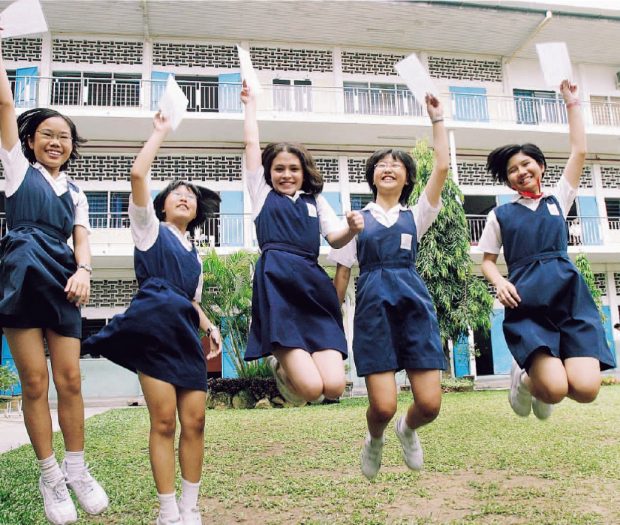Idyllic Early Childhood Schooling
From the age of seven till I was 12, going to primary school near my home was one of the activities I fondly looked forward to. Classes may start at 12.30 or 1 in the afternoon, but tens of my friends and I were already at school by 11 a.m.
Not that we were too eager for the first bell or the start of a new lesson or even to be in the classroom. Our really precious moments came flooding in during the one hour or so that we had ahead of class — this was the time to be kids and really be one.
My school was located slightly on the outskirt of the village perimeter, surrounded by bushes and a small jungle, a small rubber plantation, small orchards and a small stream and water canal for paddy-field irrigation. All these were our heavenly playground. Our young minds were always very creative in inventing new games from recycled materials or left-over wood, fallen leaves and tree
branches, bamboo and mud. We ran a lot, flying kites, climbed trees, and often immersed ourselves in swimming, rafting and other activities that gave us buckets of joy. So relaxed was primary schooling that I was never burdened with too much homework. School textbooks were few, all provided free by the government. My school bag was very light as exercise books were few. Nowadays, school children from a tender age of seven have to carry heavy school bags, and homework seems like endless chores day in and day out.
Malaysian children go to primary school for six years, from standard 1 to 6. Those days pre-schooling was almost unheard off in the villages. So ‘kampung kids’ like myself never attended pre-school but we were quick to learn the ABCs, read and write and even did basic mathematics. We were taught various lessons unofficially when we worked in the paddy-fields or rubber plantations with our parents. We sang the ABCs and the 123s sometimes in Chinese dialects when we were with our friends of Chinese origin, in Tamil when were with our Indian friends, in Thai with our Siamese friends and in Jawi Arabic with other Malay friends.
Unofficial learning in the ‘kampung’ or village way, the multi-racial and multi-cultural kids that we were of early Malaysia, grew up able to speak basic Chinese, Indian, Siamese and Arabic. And we were taught by our beloved parents to be not just academically smart but more so nature-smart in that we befriended, knew about and loved nature in our surroundings.
But the scenario since late 1980s has become very much different. School children are burdened with not only academic struggles to achieve straight As in every examinations but also have no time to really become children befitting their tender age.
After school they have to go for tuition classes, returning home only late in the evening. There are no longer free weekends for them. Every Saturday or Sunday they have to attend special classes, either to have piano or guitar lessons or join karate and tae-kwon-do classes or other forms of martial arts for self-defence. When at home, they themselves start playing their hand-held or computer games or work on the PC almost all the time. They are always so engrossed that they hardly find free time to play with their siblings.
Such a pattern continues for another three years into their lower secondary school years and again into their upper secondary school years for another two years. They may do well in their form three examination and later in their form five examination but friends are few there is hardly any time for positive interactions with the society they live in. They could not join in social activities and would feel awkward in the presence of neighbours.
But of late, more and more parents have come to realise that academic excellence is not a guarantee to a happy successful life for |their children. Instead, more are allowing their children to make their own choice on how they want to study or if they feel they need tuition or whether or not the children want to acquire musical skills or excel in martial arts. Or, if they just want to be kids, enjoying their growing up years without much burden and pressure from adults to perform. It’s my wish that my children will make a wise choice for my grandchildren.
By Mohamad Nasir Yusoff, Bernama News Agency






















































